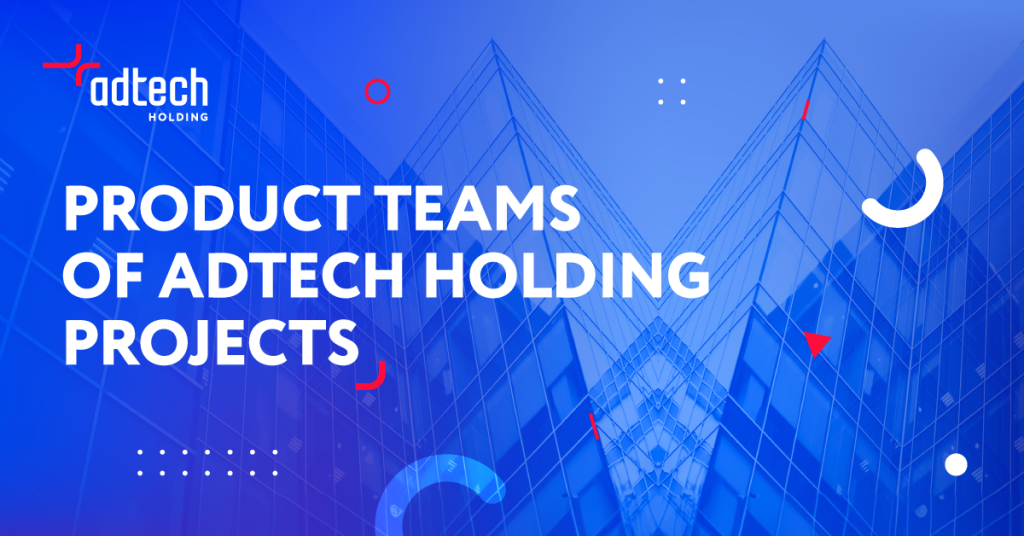Empowering AdTech Startups: Where to Find Support for a Novel AdTech Project?

According to statistics, AdTech startups took only a 7 percent share of all new venture capital-funded businesses. A more devastating fact is that the last five years showed a 29% drop in AdTech startup funding.
As Jeremy Fain, the CEO and co-founder of Cognitiv, puts it in his Forbes article, the primary reason for such a half-hearted approach to invest in AdTech startups is the monopoly. All new AdTech projects are forced to compete with the domination of Google and Facebook, which seize most digital advertising spending and data. Besides, the actual threat of the need to recalibrate programmatic advertising approaches due to the possible cookieless future also discourages investment.
The positive news is the market dominance of Google and Facebook has become significantly less severe. Antitrust investigations into Google in Europe and brands’ concerns with Facebook advertising — mainly its elevated prices — also inspire trust that more users will turn the tide in favor of novel AdTech projects.
Moreover, digital ad spending keeps growing yearly, giving hope for new projects to find their space in the market and financial or organizational support.
Today, with Konstantin Kuznetzov, AdTech Holding’s Chief Product Officer, we will consider the possible options for receiving such support for AdTech startups.
Mark Your Goals: Possible Investment Options
Usually, startup owners search for the most straightforward support: funding. However, financial backing is not always an ultimate and surefire option to empower a project.
Entrepreneurs also tend to lack experience and expertise: with an advanced idea in mind, they stay clueless about the directions of promoting or selling the new product.
Thus, here are the standard investment options that can be offered to AdTech startups:
- Financing. An investment that implies financial support for partial ownership of the project in return.
- Financing + Expertise. This option is required when an entrepreneur lacks resources for accelerating a project: for example, experience in sales and even hiring sales specialists while having enough software development expertise. The optimal solution in such cases is the investment that will combine funding and support with building a sales team or providing other resources.
- Alternative investment models. Some investors provide startups with particular services instead of simple funding — for example, building sales channels. After reaching certain KPIs, an investor becomes a shareholder. Simply put, a startup outsources particular tasks for partial project ownership in such models.
- Investing into people. One of the investment models suggests that investors or companies find an idea and search for CEOs or product owners with the expertise in the niche to develop this idea.
Depending on a startup’s goals and the required investment model, entrepreneurs can find support for their AdTech startup via one of the four common ways.
Investment Funds and Incubators
The most straightforward option is approaching private investors, also known as business angels. Besides, there are business accelerators or incubators — organizations that provide entrepreneurs with all-around support throughout the whole journey. This might include office spaces, consulting services, investor access, administrative help, and more.
Konstantin Kuznetsov: Enrolling in a business incubator seems even better than inviting classical investments: such organizations give you access to funds and help validate your idea. In my opinion, a neat presentation of a great, innovative project is not always enough. When you invite investments for the already validated hypothesis, you will have a more significant share in the project than if you come with a half-baked, untested idea.
Meanwhile, an investor will see a bigger potential in your project if it passes the validation stage. Overall, investors rely on one of the ten projects that will succeed and pay off all the failed investments, so if they see proof of the possible growth, they will be more willing to support it.
Personal Connections and Networking
When an entrepreneur’s activities are highlighted in the media and overall well-known in the market, their projects are more likely to attract investments. Thus, entering the media space and remaining in the public eye boosts the chance to catch the attention of business angels.
The reason is that purchasing a share in the project also implies taking risks for an investor, and this is why financing providers prefer backing familiar names to the new kids on the block.
Konstantin Kuznetsov: If you’ve made a name and approved yourself in the industry, you can usually attract investors very quickly — all your updates and information about your projects will be willingly shared among Linkedin or other network users. I have an example of how an entrepreneur with a successful startup in the past got investments within 2 hours after he came up with a new project.
Moreover, networking gives an opportunity to become connected with investors who search for talents and fresh ideas to invest in — or require product owners to develop new projects.
Hackathons
Participation in big AdTech-related hackathons is always about extensive media coverage. The best projects from such codefests always reach a particular level of awareness and attract investors who see potential in the idea and prototype released during a hackathon.
The biggest attention is obviously given to the winners, but it doesn’t mean the other participants stay away from the spotlight.
Konstantin Kuznetzov: Hackathon, in the first place, gives the motivation to gather a team and receive feedback, so such events can be, of course, considered as another networking opportunity. However, it is also a way to get investors’ attention immediately.
AdTech Holding’s debut open hackathon — HackAdTech 2022, witnessed a great related case study. We had a team gathered from scratch in our special HackAdTech Slack chat. During the contest, this team created an app — and although they did not win the Hackathon, they continued mutual work on the project and are going to the first investment round now.
Governmental Support
Relying on government funding programs is common enough worldwide. The main concern that might arise among entrepreneurs is that public investment into an AdTech project might not imply much involvement and informational or organizational support.
However, empowering an AdTech startup by getting a grant for a particular funding amount might become an optimal solution for a beginner entrepreneur who has not developed strong enough connections to gain trust among private investors yet.
Here is how it might work (in the example of Cyprus):
- The main body for financing startups in Cyprus is the Research and Innovation Foundation (RIF).
- RIF provides startups with grants that cover up to 85% of the invested capital.
- To apply, entrepreneurs must select and enroll in one of the available programs on the RIF website.
The main hurdle might be a lack of programs for a particular startup niche available right away: every program has a specific direction, like technological development, science, education, etc.
AdTech Holding Experience: How We Grow and Help Startups?
AdTech Holding has launched and grown a range of startups under its roof. All the projects are based on the principle of creating a new startup ‘within a step from current projects’ — for example, based on the existing technology or client base.
This approach ensures a competitive advantage — but does it require any support like beginner entrepreneurs? The answer is yes — with the only difference in the kind of support AdTech Holding looks for its new projects.
In a nutshell, this support is related to expertise AdTech Holding might lack at the time being — and here is how such issues are solved:
- AdTech Holding attracts experts from different niches to adopt their experience and get consulting support.
- AdTech Holding hires business owners with enough expertise in the niche to grow new projects.
Finally, besides working on its internal startups, AdTech Holding provides financial and informational support to IT projects and events to create networking spaces and give opportunities to new projects, initiatives, and businesses in the digital industry.
The recent holding activities involved sponsoring ProductCamp Europe, the Digital Cyprus Conference, and the Digital Marketing Forum.





